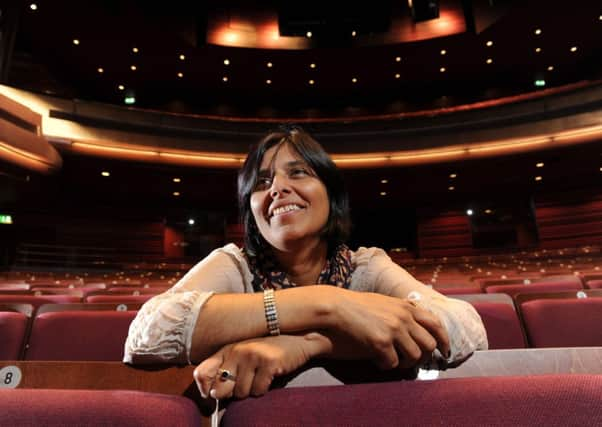Theatre: Director Kully Thiarai talks about Veil


The debate around the wearing of the veil by Muslim women can provoke a range of responses from acceptance and respect for religious and cultural difference to barely disguised racism, sexism and Islamophobia.
The veil is often perceived as a symbol of oppression but for many women wearing it is a matter of personal choice and one which they find empowering.
Advertisement
Hide AdAdvertisement
Hide AdA new performance art piece, Veil, which comes to Bradford and Leeds in November, explores these multi-layered issues through the voices of Muslim women, often under-represented in the debate.
The piece, an immersive installation that includes spoken word performance, was created by theatre company Mama Quilla, and has been developed through working with women from Leeds, Bradford, Manchester and London, of all ages and from a wide range of ethnic Muslim backgrounds.
The central performance piece for Veil was written by playwright and co-founder of Mama Quilla Kay Adshead with the installation created by Yorkshire-based digital artist Shanaz Gulzar. The whole piece is directed by Kully Thiarai who is also artistic director of the Cast theatre in Doncaster. “I produced a piece of Kay’s called The Bogus Woman many years ago and I have always had a commitment to her writing, particularly because she has a strong political feminist voice and the quality of her writing is very poetic,” says Thiarai.
“She did a project called Singing Stones which was based on the true story of a woman who was stoned. She was working with a number of Muslim women and they had interesting stories to tell from a perspective which wasn’t just about oppression.” The conversation continued with Adshead doing further research in London while Gulzar and Thiarai spoke to Muslim women in the North. “We interviewed a number of women about what it means to them to be a Muslim woman, whether they wear a veil or not,” says Thiarai. “We talked to them about identity – how they see themselves and how the world sees them. It was interesting to hear why some chose to wear the veil and what it feels like to have made that active choice and about sometimes being under pressure to wear it or under pressure to reject it. We met women from all sorts of environments – some who have grown up here and feel very British and others of a different generation whose lives have been shaped by other countries, so it was a very rich conversation.
Advertisement
Hide AdAdvertisement
Hide Ad“It’s about hearing voices that shine a new light on something that may seem familiar but if you hear it from another perspective it makes you think about it in a different way.” Thiarai explains that the piece is still in development and that the performances will be an opportunity to get feedback from the audience. The plan is to develop it further early next year when it will be part of Alchemy, the South Asian Festival on London’s South Bank, it will also play at Cast and may go up to Edinburgh in the summer.
Meanwhile Thiarai’s work in Doncaster will keep her busy. Appointed last year, she has already made a big impact and brought the venue national recognition through interesting, diverse programming. “I think audiences want to be challenged and engaged as well as have fun,” she says.
“It’s not just about giving people something that’s safe. We all have extraordinary stories to tell and it is important to find ways of sharing them.”
THEATRE ABOUT BIG ISSUES OF THE DAY
Mama Quilla is an award-winning performing arts company offering a female perspective on the big issues of the day. Kay Adshead is a poet, playwright and theatre maker. She trained at RADA as an actress and has written over 25 plays. Shanaz Gulzar is a digital installation artist whose work explores interactions between new technologies, film, theatre, place and identity.
n Veil, Theatre in the Mill, Bradford, November 1 and HUB, Leeds, November 15.